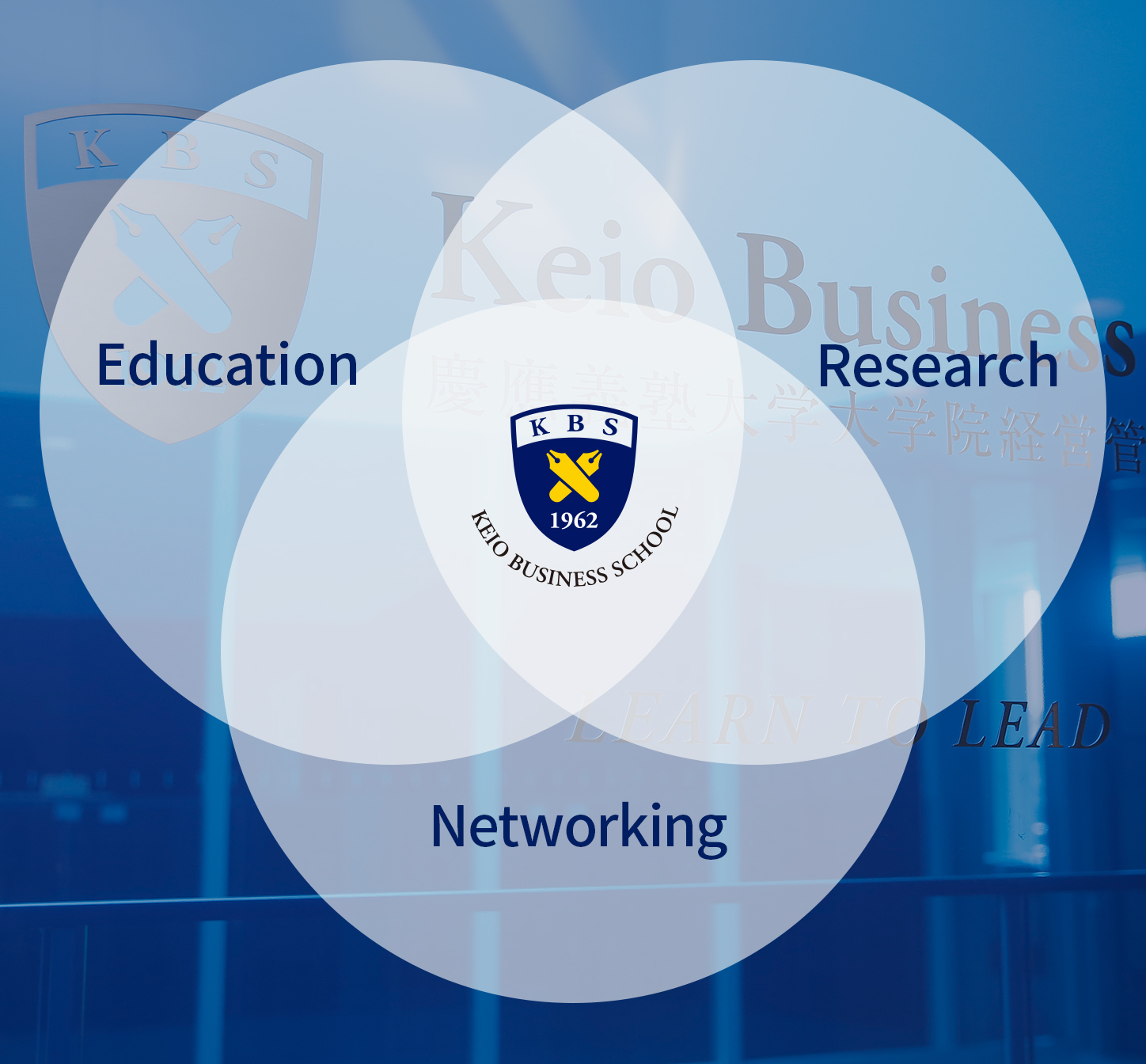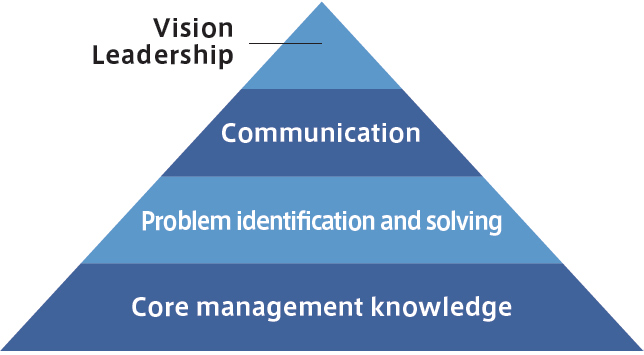- HOME
-
About
About
Mission Statement
KBS develops leaders who can envision and materialize original business concepts.
Here, scholars and students of diverse backgrounds find enjoyment in learning together, delivering world-class research, and integrating academic theory with business experience.
About KBS
KBS has the longest history in management education and research in Japan. It was founded in 1962 as a business school department in Keio University, and referred to as KBS (Keio Business School, official name being Graduate School of Business Administration, Keio University) since then. KBS offers full-time MBA, executive MBA, and Ph.D. degree programs, as well as short-term open-enrollment type of seminar programs.

Since its founding, KBS has consistently endeavored to nurture business leaders who can lead society and organizations, based of the collaborative activities in education, research, and networking.
The purpose of education is to nurture business leaders with cutting-edge knowledge and skills for conceptualizing and creating new ideas of business for the future of society and organizations. The purpose of research is to promote and publish advanced research in each field of management, as well as to support educational activities with theoretical framework. The purpose of networking includes collaboration among students, participants, and faculty members to combine theory and practice, so as to enhancing networking for creating synergy effect among research and education, and to contribute the culture of half-learning half-teaching which contributes to nurture worth-trusting business leaders.
The advantage of education at KBS lies in the heavy utilization of case discussion method in all disciplines, which is referred to as Keio case method. Students and participants discuss issues and solutions under the guidance of faculty. The learning environment is not one way from faculty to students. The collaborative discussion process nurtures commitment, leadership, communication among students and faculty. KBS puts emphasis on close relationship with business industries as well as top-tier overseas business schools, and provides a variety of collaborative opportunities with business leaders and with outstanding faculty and students, thereby creating a synergy and mutually reinforcement effect between the areas of education, research, and networking.
KBS Programs
Full-time MBA Program (masters program)
Aimed at younger candidates in their early careers, the full-time MBA program nurtures the leadership qualities of businesspeople through extensive and sophisticated discussions conducted through the Keio case method and small-group seminars under Professors' supervision.
Executive MBA Program (masters program)
Aimed at mid-career executives, the executive MBA program nurtures global businesspeople ready to optimize their businesses, and prepare them for leadership positions.
Ph.D. Program
The Ph.D. program nurtures leading scholars on the frontier of management theory research, capable of applying cutting-edge theory to practical business challenges and management education.
Executive seminars
Executive seminars afford experienced managers a uniquely practical and cross-sectoral opportunity to gain organizational management skills and insights into strategy execution through the Keio case method training, along with close interactions with peers in other business fields.
The KBS Difference
1. Practical training using the case method
The case method is an active approach to learning in which students explain their ideas and debate issues instead of passively absorbing information through lectures. Students gain practical business skills through this interactive learning style.
2. Curriculum focused on the study of management issues and real challenges facing your company
From morning to evening, our students engage in a thorough study of management issues through the process of preparation, debate, reflection and the systematization of knowledge.
3. World-class faculty adept at teaching universal management theory and skills based on advanced research
4. Education quality accredited by global standards and international networks to enhance research and education
KBS is the first business school in Japan being internationally accredited.

AACSB International
Agreements with global business schools: Maximizing relationships and contents through international alliances.

EFMD

AAPBS

PIM
KBS's Management Talent Vision
The next-generation business leaders need a multifaceted managerial skill set.

1.Core knowledge in key management fields
2.Insight into latent issues and ability to solve them
3.Ability to stimulate meaningful discussion with a diverse group of people
4.Leadership to envision new business from a wide perspective and motivate people
